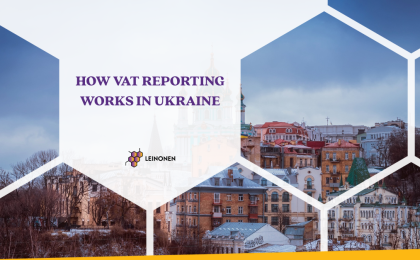Company Establishment
Why open a company in Ukraine?
Although Ukraine is currently engaged in a war on its Eastern borders and the security situation is unstable, it remains a potential market for investors that are able to operate considering the risks. Right now, investors are positioning to support Ukraine in its rebuilding efforts once the war ends and new possibilities open. For many, this means establishing small-scale operations and legal entities with small staff in order to prepare for larger investments once the security situation allows business to normalize. Establishing a company in Ukraine may take 1-3 months due to the paperwork involved, so many consider establishing a legal entity already at this time to prepare for the future. It is likely that once the war ends there will be a rush of foreign investors coming into the country, so it may be wise to stay ahead of this development.
At the moment, many international organizations are supporting investment projects into Ukraine via grants and loans with preferred conditions. Additionally, businesses may consider supplying goods to Ukraine via the many procurement projects that the Ukrainian government is publishing and supporting with public funds.
The Western parts of Ukraine and cities such as Lviv that are located there, are safer than the middle regions and especially the Eastern parts of the country. Businesses also take this into account when planning their operations. Electricity outages are an important consideration for businesses country-wide, and due to them it is very challenging to arrange profitable operations for companies that require a lot of electricity in for example production activities.
How to open a new business in Ukraine?
Before undertaking business activity in Ukraine, it is necessary to choose which type of legal entity you need, and then to create the entity. The type of the legal entity will influence all the activity of the company, from tax procedures to customs declarations, same as in almost all other countries. Most commonly investors choose to establish a Limited Liability Company or LLC, which enables you to do business without limitations. Starting a company in Ukraine usually takes approximately 1-3 months, for more information we recommend to read our article about company formation with the steps to establish a new business included.
Accounting & Taxation
Accounting and Payroll in Ukraine
Accounting and payroll in Ukraine are legally much the same as in more developed European markets, but in practice a lot of nuances have to be taken into account. The accounting practices in Ukraine are governed by the Law on Accounting and Financial Reporting since the year 2000. This law states that IFRS should override local accounting standards, but in practice there are many differences between the two. The fiscal year begins on January 1st and ends on December 31st, i.e. it is always the calendar year.
Recently, Ukraine has moved away from the traditional accounting software 1C because it is a Russian-originated software. Nowadays, a software called BAS is the most commonly used accounting software in Ukraine. The BAS solution is based on the same technology as 1C and is similar in its functions.
What are the controlling institutions?
The regulatory body for accounting is the Ministry of Finance. For tax payments, companies are controlled by the State Fiscal Service of Ukraine. Payroll taxation and employees’ rights are monitored by the State Labour Inspectorate.
Tax rates in Ukraine
Corporate income tax – 18 %
VAT – 20 %
Social security contributions (payroll tax) – 22 %
Personal income tax – 18 % (additionally a 1,5 % military tax is currently levied, and the military tax may be raised to 5 % in the near future.)
These are the basic tax rates that apply to normal limited liability companies and people in Ukraine. There are many exemptions to these numbers, for example private small entrepreneurs generally only pay 5 % tax. Many foreign companies use such private entrepreneurs for outsourcing, especially in the IT field. In these cases an accounting partner usually takes care of the PE registrations, international invoicing and tax payments, in essence taking care of the payroll and administration responsibilities.
Standard VAT rate is 20 %. Export of goods VAT is 0 %, for services it can be 0 or 20 % depending on the place of receiving services, place of registration of the recipient etc. Import of goods and services to Ukraine is subject to 20 %VAT and customs duties.
Interesting facts about accounting and payroll in Ukraine
Ukraine uses an electronic document platform for accounting and payroll documents. This means that most of the documentation necessary when doing accounting and payroll may be handled and stored electronically. This is a development that has become reality during the past 5 years, before which a lot of paper documentation was still used. Even nowadays if your counterparty is not using the electronic documentation platform, it will be necessary to exchange paper documentation with them. Additionally, agreements, especially cross-border agreements, need to be signed in wet ink most of the time. Banks may require to see original documents supporting international money transactions.
Ukraine is a very popular outsourcing market for IT services in particular. The legislation allows foreign companies to purchase services from local private entrepreneurs in such a way that resembles having the entrepreneurs on the foreign company’s payroll.
How often do I have to report?
Monthly: VAT report, Report of Unified Social Insurance Contributions, specific statistical reports
Quarterly: Financial statements, personal income tax reports, CIT reports
Annually: Financial statements, CIT report.
How often will the government audit me?
The government performs scheduled on-site tax audits of companies which are listed on the audit plan of the relevant tax office. This list is published online, so companies can check if they are on it. Unscheduled tax audits are performed in case the target company violates some statute of the tax law, e.g. fails to file a tax return.
Some types of companies face mandatory audits, for example JSCs, banks, issuers of securities, financial institutions and insurance companies.
Are tax authorities strict regarding the Accounting and Payroll regulations?
Yes, they are. Checks by the tax authorities and especially audits during VAT returns have become more common during the martial law period. This is a fact that companies operating in Ukraine have to take into account. Many minute details have to be taken into account when doing accounting, as it is very easy to break the rules. A professional and accurate accountant is the best way to minimize risks when it comes to government audits and checks.
Unfortunately foreign companies especially may sometimes face harassment from the tax authorities, however this is occurring less and less in recent years.
Employment
The regulation of employment in Ukraine is governed by the Labor Code of Ukraine, which applies equally and must be complied with by both the executives and the employees. Ukrainian labour laws apply to foreign nationals and foreign businesses in Ukraine in the same manner as to domestic entities. All regulations related to minimum guarantees, employment benefits and compensation supersedes any agreement between the employer and employee. In general, the Ukraine labour law is protective of the employee.
Expats are liable to pay resident Ukrainian taxes and social charges only if they stay in the country at least 183 days during a calendar year. Your employer will typically arrange for your registration with the Ukrainian tax office and secure your tax number. Self-employed workers will need to arrange their tax registration and Ukrainian tax number themselves. Ukrainian social security payments are deducted from your gross salary by the employer.
In the condition of an employer-terminated agreement as a result of redundancy or liquidation, two months’ notice is given along with a two months’ salary severance payment to the employee.
Termination of the employment agreement by the employee may be carried out by providing two weeks’ written notice to the employer, which is a basic right under the Labor Code that cannot be overridden by contractual terms.
Being an Expat
An investor looking to start a company in Ukraine may want to consider moving here to manage their company. In this case they must first start their company so that they have the company’s registration certificate, and after that apply for a work permit. The work permit entitles them to receive an entry visa into Ukraine, and afterwards apply for a three year work visa and residence permit. This process is somewhat cumbersome but easily done with the right help. For most countries’ citizens, it is also possible to visit Ukraine visa-free for a maximum of 90 days per each 180.
Ukraine is a nice but challenging place to live due to the war ongoing. Travel is only possible via land borders, and takes a long time. Foreigners should consider that currently Western Ukraine is a safer place than Kyiv and especially the Eastern parts of the country. Consequently, the Western parts such as Lviv are also more expensive to live and stay in.
A foreign national who is living or working in Ukraine for more than 183 days in a calendar year is obliged to pay taxes and contributions towards the Ukrainian social security system. Usually double taxation can be avoided but this should always be checked on a case-to-case basis.





